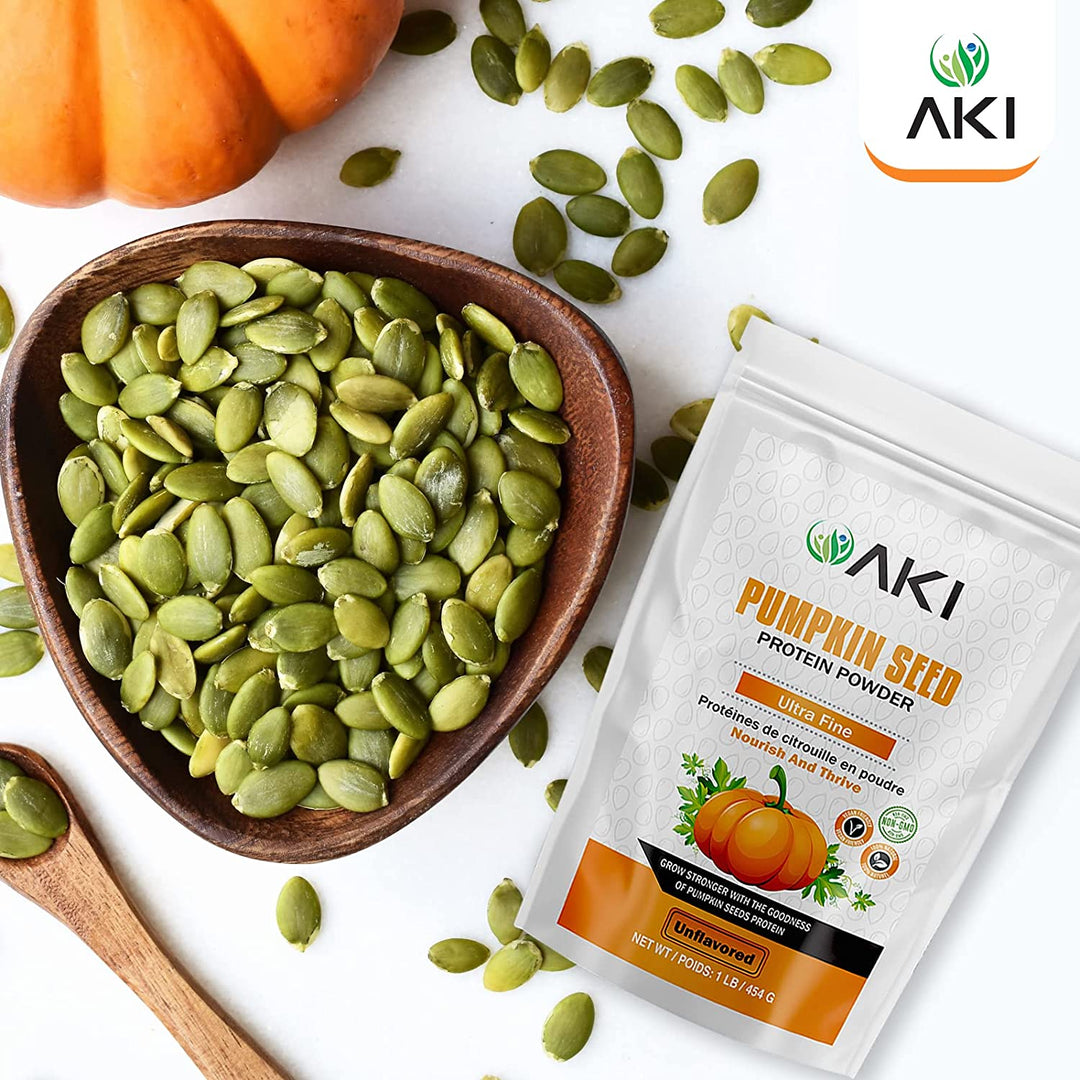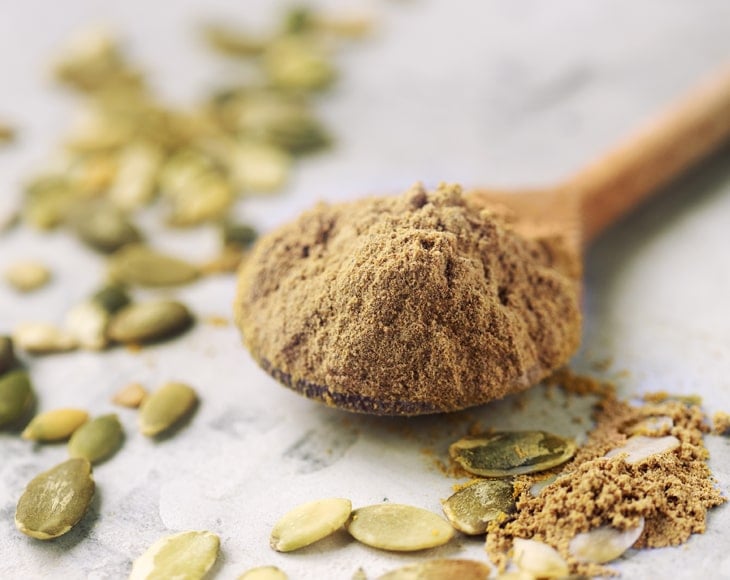Introduction: The Rise of Pumpkin Seed Protein
Pumpkin seeds protein has emerged as a nutritional powerhouse in recent years, captivating health enthusiasts and experts alike. Its rich array of nutrients and potential health benefits have propelled it into the spotlight as a superfood worth exploring. In this article, we delve into the depths of pumpkin seed protein, uncovering its nutritional profile, health benefits, culinary versatility, and more. Join us as we unlock the power of this nutritious superfood.

-
The Nutritional Profile of Pumpkin Seed Protein
Pumpkin seed protein boasts an impressive nutritional profile, packed with essential vitamins, minerals, and antioxidants. From protein and fiber to magnesium and zinc, it offers a diverse range of nutrients vital for overall health and well-being. Understanding its nutritional composition lays the foundation for recognizing its potential health benefits and culinary applications.
-
Health Benefits of Pumpkin Seed Protein
The consumption of pumpkin seed protein is associated with a myriad of health benefits, ranging from improved heart health to enhanced immune function. Rich in antioxidants, it helps combat oxidative stress and inflammation, reducing the risk of chronic diseases such as heart disease and diabetes. Furthermore, its high protein content supports muscle growth, weight management, and satiety, making it a valuable addition to a balanced diet.

-
Culinary Versatility: Incorporating Pumpkin Seed Protein into Your Diet
One of the most appealing aspects of pumpkin seed protein is its culinary versatility. From smoothies and baked goods to savory dishes and snacks, there are countless ways to incorporate it into your diet. Whether you’re looking to boost the protein content of your favorite recipes or experiment with new culinary creations, pumpkin seed protein offers endless possibilities for delicious and nutritious meals.
-
Sustainable and Environmentally Friendly: The Eco-Friendly Benefits of Pumpkin Seed Protein
In addition to its nutritional value and culinary versatility, pumpkin seed protein also holds promise as a sustainable and environmentally friendly food source. Pumpkin seeds are readily available and require minimal processing, making them a more sustainable alternative to animal-derived proteins. By choosing pumpkin seed protein, consumers can support eco-friendly agricultural practices and reduce their environmental footprint.

-
Potential Drawbacks and Considerations
While pumpkin seed protein offers numerous health benefits and culinary advantages, it’s essential to consider potential drawbacks and limitations. Some individuals may experience allergies or sensitivities to pumpkin seeds, necessitating caution and moderation in consumption. Additionally, certain processing methods and additives used in pumpkin seed protein products may diminish their nutritional quality. Being mindful of these factors can help individuals make informed decisions about incorporating pumpkin seed protein into their diet.
-
Emerging Research and Future Directions
As interest in pumpkin seed protein continues to grow, researchers are exploring its potential applications and uncovering new insights into its health-promoting properties. Emerging studies suggest that pumpkin seed protein may have specific benefits for conditions such as prostate health, urinary health, and even mood regulation. Ongoing research is also investigating its role in sports nutrition, gut health, and metabolic disorders, promising exciting developments in the field of nutritional science.

-
Incorporating Pumpkin Seed Protein into Specialized Diets
For individuals following specialized diets such as vegan, vegetarian, or gluten-free, pumpkin seed protein offers a valuable source of plant-based nutrition. It provides essential amino acids, making it an excellent protein option for those seeking alternatives to animal-derived proteins. Additionally, its naturally gluten-free and allergen-friendly profile makes it suitable for individuals with dietary restrictions or sensitivities, expanding the accessibility of nutritious food choices.
-
Cultivating Awareness and Support for Sustainable Agriculture
Beyond its nutritional and culinary benefits, the cultivation of pumpkin seed protein promotes sustainable agriculture practices and supports local economies. By sourcing pumpkin seeds from organic, regenerative, or small-scale farms, consumers can contribute to the preservation of biodiversity, soil health, and traditional farming methods. Choosing products with transparent supply chains and ethical sourcing practices further reinforces the connection between food choices and environmental stewardship.

-
DIY: Making Your Own Pumpkin Seed Protein Products
For those inclined towards a hands-on approach, making homemade pumpkin seed protein products offers a rewarding culinary experience. Whether it’s grinding raw pumpkin seeds into flour, blending them into creamy nut butter, or incorporating them into energy bars and granola, the possibilities are endless. DIY enthusiasts can experiment with different recipes, flavors, and textures, customizing their creations to suit their preferences and dietary needs.
-
The Journey Ahead: Exploring New Frontiers in Nutrition and Wellness
As we embark on the journey ahead, unlocking the power of pumpkin seeds protein represents just one facet of the broader quest for optimal nutrition and wellness. By embracing diverse superfoods, whole foods, and nutrient-rich ingredients, we can nourish our bodies, cultivate culinary creativity, and foster a deeper connection to the food we eat. Let us continue to explore, innovate, and celebrate the abundance of nature’s bounty, paving the way towards a healthier, more sustainable future for all.
-
Harnessing Pumpkin Seed Protein for Global Food Security
In the context of global food security, pumpkin seeds protein holds promise as a sustainable solution to address nutritional deficiencies and hunger. With its ability to thrive in various climates and soil conditions, pumpkin plants offer a resilient source of protein-rich seeds that can supplement diets in regions facing food insecurity. By promoting the cultivation and consumption of pumpkin seed protein, policymakers, NGOs, and agricultural organizations can empower communities to enhance their food sovereignty and resilience to environmental challenges.
-
Supporting Local Farmers and Indigenous Communities
The production of pumpkin seeds protein presents an opportunity to support local farmers and indigenous communities who have cultivated and preserved these nutritious seeds for generations. By prioritizing fair trade practices, equitable partnerships, and community-led initiatives, consumers can ensure that the benefits of pumpkin seed protein production are shared equitably among those who steward the land. Through collaborative efforts, we can foster economic empowerment, cultural preservation, and social cohesion within farming communities worldwide.
Conclusion: Embracing the Power of Pumpkin Seed Protein
In conclusion, pumpkin seed protein stands out as a nutritious superfood with immense potential for enhancing health and well-being. Its rich nutritional profile, diverse health benefits, culinary versatility, and eco-friendly attributes make it a valuable addition to any diet. By embracing the power of pumpkin seed protein, individuals can nourish their bodies, support sustainable food systems, and explore new realms of culinary creativity. Let’s unlock the full potential of this remarkable superfood and reap the rewards of its goodness.
